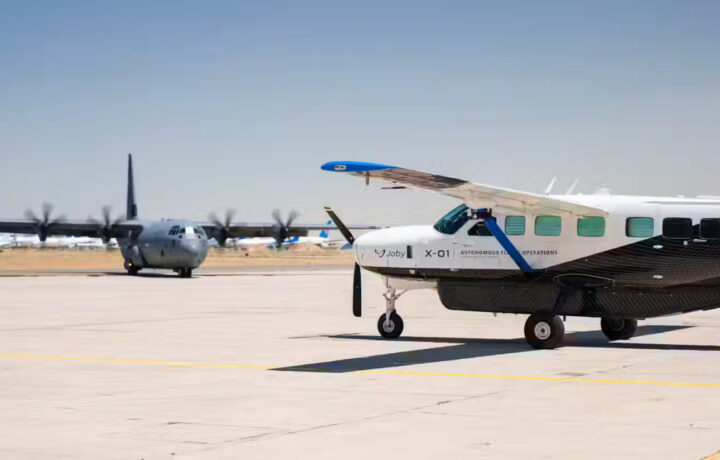As I’ve noted in past columns, the demand forJoby’s (JOBY) eVTOL (electric vertical take-off and landing) aircraft is likely to be quite strong, given the valuable service that its aircraft will provide and the impressive partnerships that it has cemented.
Recently, Joby carried out a test flight that portends well for its ability to generate large amounts of revenue from Washington. What’s more, an acquisition should help enable the company to launch service relatively soon in the New York City area and give it a first-mover advantage in the region, while the aviation upstart continues to make commendable progress with regulators.
For all of these reasons, I remain upbeat on the long-term outlook of JOBY stock.
A Potentially Momentous Test and a Very Useful Acquisition
On September 3, the company reported that its Superflight system had successfully autonomously piloted a Cessna Caravan 208 plane more than 7,000 miles. Carried out in conjunction with the Pentagon, the test leaves the company poised to seek contracts from the agency related to “autonomous and hybrid aircraft,” Seeking Alpha reported, noting that the Defense Department has requested $9.4 billion during fiscal 2026 for such programs.
On the acquisition front, Joby in August bought Blade Air Mobility’s “leading urban air mobility passenger business.” Specializing in providing helicopter flights to and from New York City, Blade has 12 terminals in total and flew a total of over 50,000 passengers in 2024. In addition to its locations in New York and New Jersey, Blade has businesses in the Vancouver area and Southern Europe.
The acquisition will enable Joby to utilize Blade’s infrastructure, including its lounges and real estate. The importance of lounges should not be underestimated, as they enable passengers to avoid the sun and rain while they wait to be transported, Joby CEO JoeBen Bevirt pointed out during the company’s second-quarter earnings call, held on August 6.
Also importantly, the deal gives Joby access to Blade’s customer base, enabling the eVTOL operator to quickly and easily pitch its transportation service to many individuals who are willing and able to pay large amounts for fast, traffic-free, short-distance transportation. And finally, Bevirt reported that it’s not easy to obtain real estate near the vertical takeoff and landing sites that Blade’s helicopters are using and Joby’s eVTOLs will eventually use.
In light of all of these point, Joby could have a huge first-mover advantage over other eVTOL operators in the markets in which Blade operates. And given the New York City area’s many wealthy individuals and major traffic issues, that region should be quite lucrative for Joby.
Major Progress With Regulators
In the UAE, where Joby intends to begin providing eVTOL service in 2026, the company recently completed “21 piloted test flights,” Bevirt noted. “We gained invaluable insights about the performance of our aircraft as we prepare to move from flight testing to exhibition flights and on to commercial service,” the CEO said,
Further, the FAA has approved over 50% of Joby’s “test plans,” and, as of August 6, the company was preparing to launch “its first conforming aircraft intended for Type Inspection Authorization (TIA) flight tests.” The firm’s pilots are slated to begin flying these planes in 2025, and FAA pilots are expected to start flying them in order to test them “shortly thereafter,” Joby stated. The latter evaluations are part of the final phase of certification, the company explained.
Valuation and the Bottom Line on JOBY Stock
In the month that ended on September 6, JOBY stock sank 21%, leaving its market capitalization at $11.5 billion. Given the tremendous utility that eVTOLs will provide in crowded cities globally and the significant progress that the company has made on many fronts, this valuation greatly underestimates its long-term potential.
*This article is intended to be informational only; it is not financial advice.


